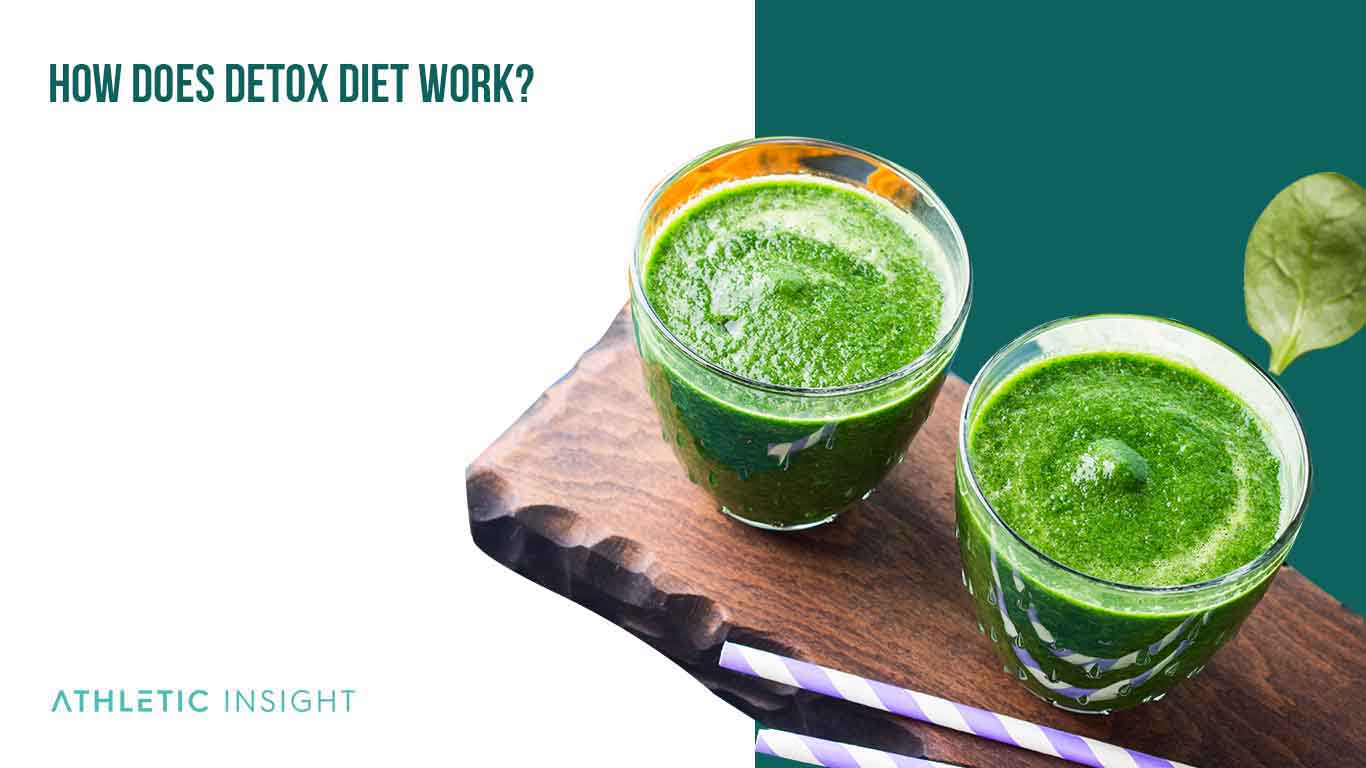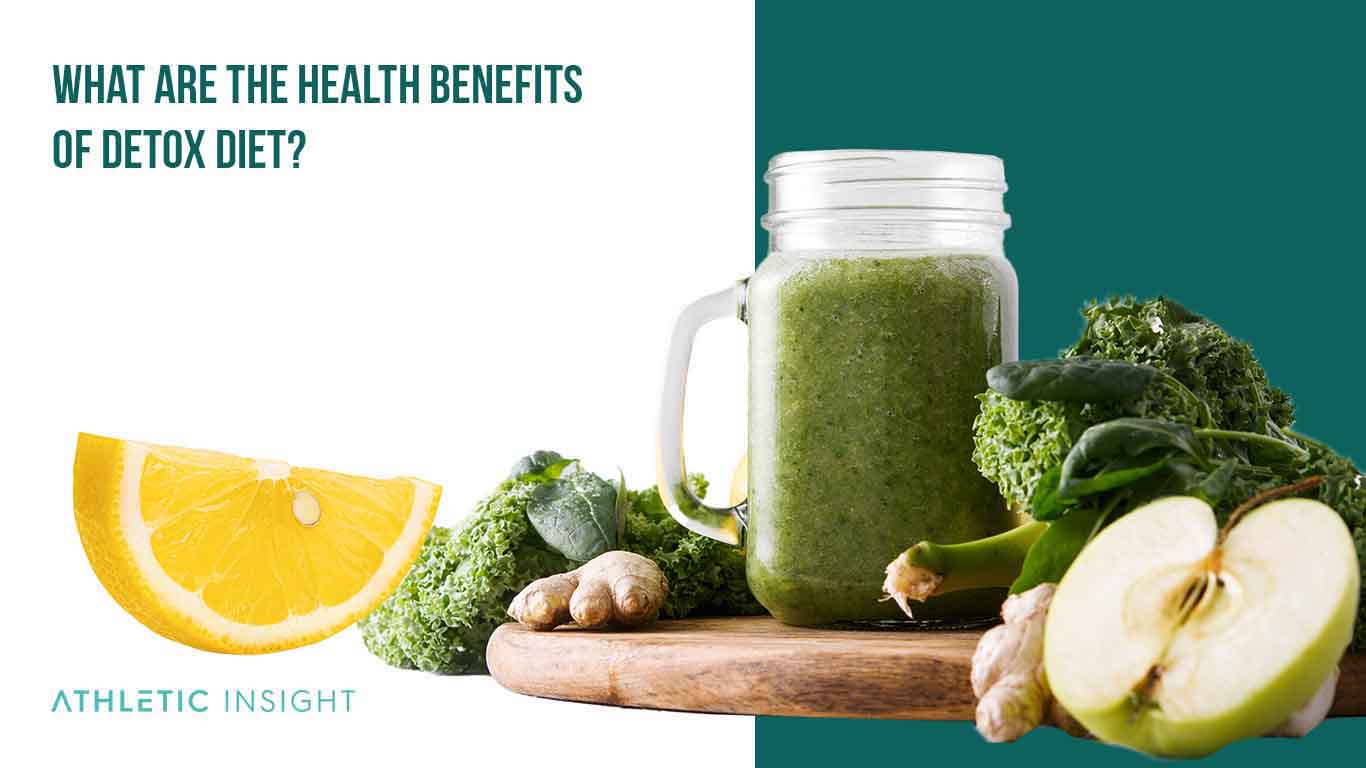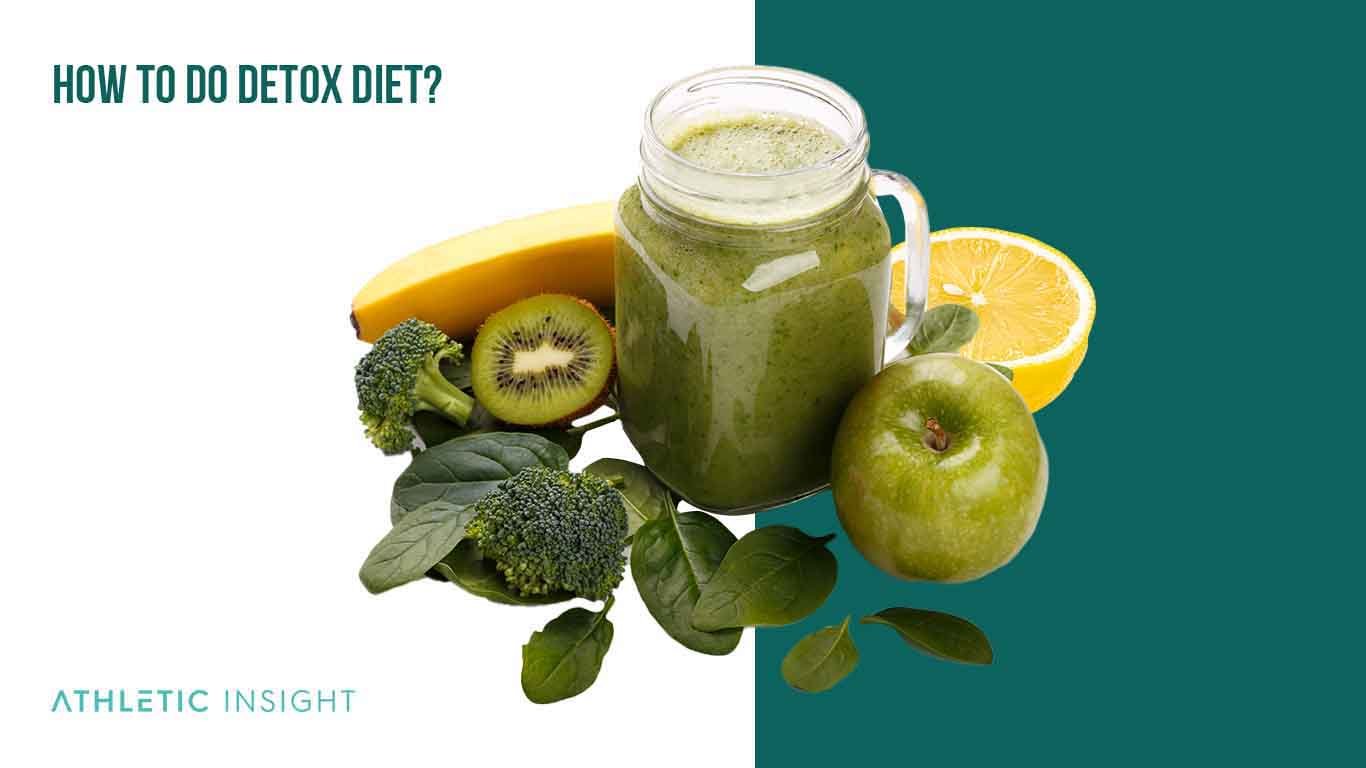A detox diet is a short-term diet that helps your body rid itself of toxins and impurities. The primary reason to attempt a detox diet is to “reset” your body, potentially boosting your immunity and helping your digestive system function more effectively.
Some of the most popular types of detox diets include the juice-only detox diet, the supplement-based detox diet, and the food-restriction detox diet. The juice-only detox diet involves only drinking fruit juices, smoothies, and liquids. The supplement-based detox diet requires dieters to consume detox-specific supplements and herbs. The food-restriction detox diet typically eliminates specific macronutrients and substances from your diet to help the body cleanse itself.
Adopting a short-term detox diet helps by providing more energy and an overall feeling of less bloating. However, detox diets aren’t appropriate for everyone, especially those with health conditions like diabetes. Eliminating your consumption of processed foods, alcoholic beverages, and preservatives after completing a detox diet is one of the best ways to ensure that the diet has long-lasting positive effects.
Throughout this article, the detox diet will be explained, such as how it works and all of the information beginners need to attempt a detox diet safely.
How Does a Detox Diet Work?
What are the initial reactions of the body to a detox diet? The way a detox diet works varies depending on your specific type of detox diet.

Still, these diets work by reducing the energy required to break down complex foods and restoring your gut flora to aid in more effective digestion. To better understand this process, let’s examine how a liquid detox diet (also called a juice-only diet) impacts the body.
Liquids, primarily water, smoothies, and fruit juices, pass through the digestive system more quickly than solids. The intestinal tract absorbs the nutrients in these liquids more quickly, and your body expends less energy on digestion.
One of the primary downsides of this diet is that it can lead to ultra-rapid digestion, resulting in increased urination and potentially causing diarrhea. Ensuring you’re consuming fiber-rich liquids and smoothies while on a liquid detox diet can decrease the risk of adverse digestive effects.
Although the digestive system is the primary part of the body affected by detox diets, a person’s liver and kidneys can also experience functional changes during this type of dieting. The precise physical and mental effects depend on the type of detox diet you’re attempting.
Another way to illustrate this concept is to examine the sugar detox diet. This diet requires dieters to eliminate their consumption of sugar, especially processed sugars. Those with high-sugar diets experience irritation or sudden mood swings directly after eliminating sugar, as sugar is an addictive substance that triggers dopamine release.
But sugar can make the body resistant to naturally-produced insulin, making it harder to maintain a healthy weight. So those who undergo a sugar detox diet tend to lose weight.
What Are the Most Common Ways To Detox?
The most common ways to detox include the following.
- Fasting (for one to three days)
- Drinking fresh fruit and vegetable juices, smoothies, water, and tea
- Drinking only specific liquids, such as salted water or lemon juice
- Eliminating foods high in heavy metals, contaminants, and allergens
- Taking supplements or herbs
- Avoiding all allergenic foods, then slowly reintroducing them
- Using laxatives, colon cleanses, or enemas
- Exercising regularly
- Completely eliminating alcohol, coffee, cigarettes, and refined sugar
Combining some of these detox methods (such as exercising while taking supplements) is possible. The best detox diet for you depends on your preferences, dietary goals, and current health status.
What Are the Health Benefits of a Detox Diet?
The health benefits of a detox diet are mostly anecdotal and often controversial. That said, the most commonly reported health benefits of a detox diet plan include the following.

- Weight loss: Detox diets that restrict or eliminate your consumption of refined sugar or carbohydrates can promote weight loss.
- Increased energy levels: Because your digestive system is using less energy to break down meals, some energy levels increase during a detox diet.
- Improved immunity: Detox diets rich in supplements and nutritional smoothies can increase your intake of life-sustaining nutrients, thus improving your overall health and strengthening your immune system.
- Better circulation: Those that undertake detox diets that eliminate red meat, alcohol, and cigarettes find that their circulation improves during and immediately after the diet.
- More rapid digestion: Juice-based and liquid-based detox diets result in more rapid digestion, as liquids are absorbed more quickly by your digestive system (as opposed to solids).
- Improved cognitive ability: After completing a detox diet, some dieters discover that their overall cognitive ability improves, resulting in increased alertness and ability to complete complex mental tasks.
What Are the Health Risks of a Detox Diet?
In addition to health benefits, detox diets are associated with some health risks. The most prevalent health risks are listed below.
- A detox diet can result in low blood sugar, which can be life-threatening, particularly for those with diabetes.
- Liquid-based detox diets can cause diarrhea and severe dehydration.
- A detox diet that eliminates carbohydrates and sugars can cause dieters to feel lethargic and fatigued.
- A detox diet that requires dieters to consume acidic foods and beverages (lemon juice, salted water) can experience nausea or stomach upset.
How To Do a Detox Diet
To do a detox diet, you’ll want to complete the following steps.
- Select a type of detox diet (fasting, juice cleanse, supplement-based, etc.)
- Consult with your physician or nutritionist to determine diet length
- Purchase the foods or supplements you’ll need to start the diet

When doing a detox diet, you’ll need to consume at least 1,200 calories (women) or 1,500 calories (men). The proposed time frame for most detox diets is one week (seven days).
One of the best practices to follow is consulting with your physician or nutritionist before starting a detox diet. Doing so can help you avoid potentially life-threatening side effects, select the best diet for your body type and health conditions, and choose a diet length.
What Are the Foods That You Can Eat While on a Detox Diet?
Unless you’re fasting, there is a wide variety of foods that you can eat while on a detox diet. The following are foods you can eat while detoxing.
- Fruits: Lemons, limes, watermelon, blackberries, blueberries, raspberries, grapefruit
- Vegetables: Spinach, kale, broccoli, carrots, cabbage, cucumbers, tomatoes, beets
- Grains: Quinoa, brown rice, oats, barley
- Legumes: Peanuts, red kidney beans, green peas
- Nuts: Almonds, Brazil nuts, cashews
- Seeds: Chia seeds, flaxseeds, pumpkin seeds, sunflower seeds
- Healthy fats: Sesame oil, flaxseed oil, avocado oil, hemp oil
- Proteins: Tofu, lentils, chickpeas, black beans
What Are the Foods That You Should Avoid While on a Detox Diet?
You should avoid several foods while on a detox diet, including the following.
- Meat: Beef, lamb, pork, goat
- Poultry: Chicken, turkey, duck, quail, pheasant
- Fish and shellfish: Salmon, trout, shrimp, oysters, lobster
- Meat-based ingredients: Lunch meats, gelatin, blood
- Eggs: Chicken eggs, quail eggs
- Dairy products: Milk, yogurt, cheese, butter
These foods should be avoided because they’re challenging for the digestive system to break down and are common allergens.
Meat, particularly red meat, can take several days to digest fully and requires plenty of energy to break down into usable nutrients. Shellfish and dairy are common allergens and should be avoided while undertaking a detox diet.
Who Should Do a Detox Diet?
Individuals with a prolonged history of alcohol consumption, tobacco usage, or a diet rich in processed foods and refined sugars should do a detox diet.
Many people follow a detox diet when transitioning from a nutrient-poor diet to a more wholesome one. Others attempt a detox diet to reverse specific symptoms, including sluggishness, lethargy, or long-term digestive discomfort. Others adopt a detox diet to lose weight.
How Long Should You Follow a Detox Diet?
Most detox diets are safe to follow for between one day and one month. The precise timeline for a detox diet (i.e., how long you should follow it) varies depending on the precise type of detox diet you’re following.
For example, fasting is appropriate for one to three days. But juice-based detox diets that involve daily consumption of fresh fruits and vegetables can be safe to follow for up to a month.
Many people start with a 7-day detox diet plan and decide to either prolong it to a full month or stop upon reaching the end of the first week.
What Are the Best Recipes for a Detox Diet?
Some of the best recipes for a detox diet include the following.
- Detox salad: A salad consisting of kale, red cabbage, dandelion greens, turmeric, and sea salt.
- Smoothie detox diet: A smoothie diet that varies each day but includes a mix of fresh fruits, vegetables, and purified water.
- Lemon water: A glass of purified water with one to two tablespoons of fresh lemon juice added.
- Supplements and water: A glass of purified water paired with detox supplements, such as milk thistle and turmeric.
- Steamed vegetables: Any vegetables that are steamed with hot water.
What Is a Sample Detox Diet Plan?
The following is a sample detox diet plan.
- Monday: Green tea, fruit-and-vegetable smoothie, detox supplement, water
- Tuesday: Lemon juice and water, fruit-and-vegetable smoothie, detox supplement, water
- Wednesday: Green tea, fruit-and-vegetable smoothie, turmeric supplement, water
- Thursday: Lemon juice and water, fruit-and-vegetable smoothie, milk thistle supplement, water
- Friday: Green tea, fruit-and-vegetable smoothie, detox supplement, water
- Saturday: Lemon juice and water, fruit-and-vegetable smoothie, detox supplement, water
- Sunday: Green tea, fruit-and-vegetable smoothie, dandelion tea, water
What are the facts about the Detox Diet?
- Weight loss: A detox diet isn’t the best choice for weight loss, especially over the long term. But many people lose weight during and immediately after a detox diet.
- Affordable: Unlike diets that require you to purchase specific products, detox diets can cost nothing. However, those reliant on supplements can cost upwards of $100 per month.
- Chance of side effects: During the first week of a detox diet, side effects such as headaches, irritability, stomach upset, lethargy, and diarrhea are common.
- Similar to Atkins diet: The Atkins diet requires dieters to avoid carbohydrates and sugars. Many detox diets also have dieters avoid these substances, so there are similarities between detox diets and the Atkins diet.
- Many options: There is no one “detox diet.” Instead, there are several detox diet options that range from fasting to consuming specific supplements and herbs to aid in detoxification.
Although many types of detox diets exist, most are naturally low in saturated fat and cholesterol.
Is a Detox Diet Considered a Healthy Diet?
Yes, a detox cleanse diet is considered healthy and safe when attempted over a comparatively short period (between one day and one month). However, permanently adhering to a detox diet can be dangerous.
Restricted diet plans that only consist of a limited number of ingredients can result in nutritional deficits. These deficits can negatively impact your health.
If you’re considering going on a detox diet, consult your physician or nutritionist before starting. These professionals can help you decide which type of detox diet is best for your body and overall health.
Is a Detox Diet Expensive?
No, most detox diets aren’t expensive. Because the majority of detox diets focus on eliminating specific foods rather than adding them to your diet, restrictive detox diets (fasting, exercising, eliminating alcohol and sugar) tend to be inexpensive.
However, detox diets focusing on supplementation, colon cleanses, or fresh fruit and vegetable juice can be expensive. Fresh fruits and vegetables are typically pricier than canned options or premade juices. Supplements can also be quite costly, as can medically-assisted colon cleanse procedures.



